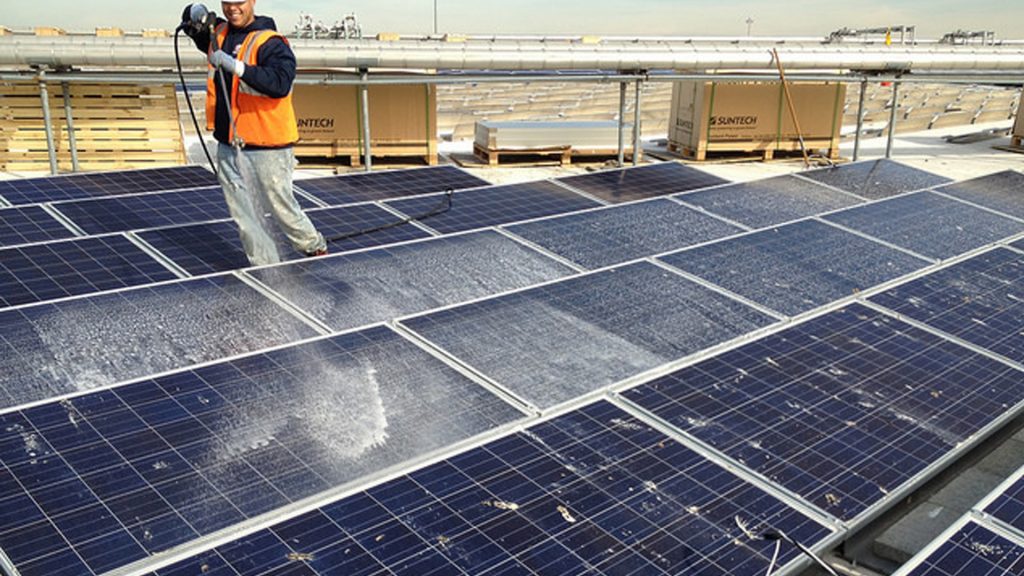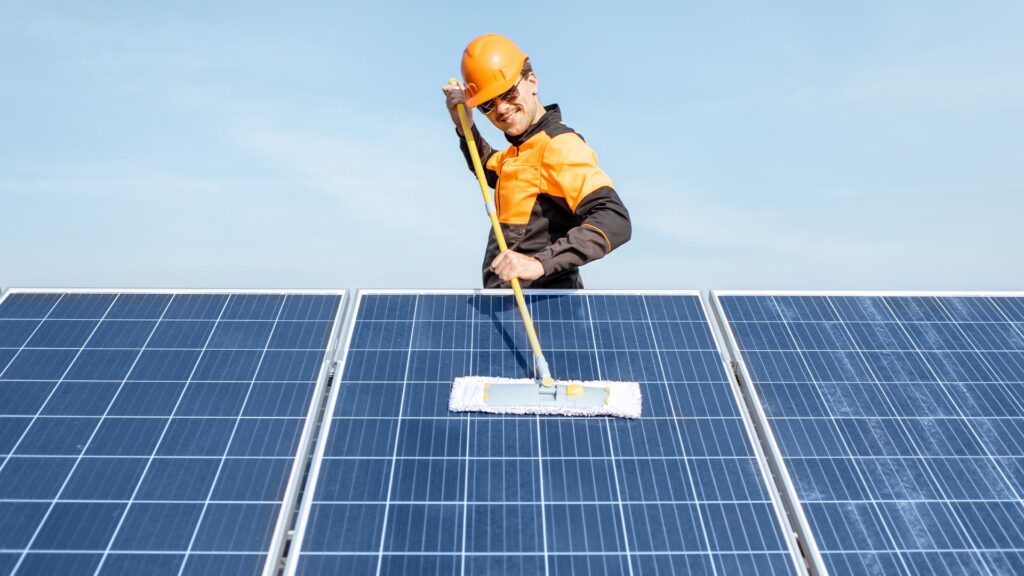
As solar energy continues to gain popularity as a sustainable power source, ensuring the efficiency and longevity of solar panels becomes paramount. While solar panels are designed to be low maintenance, regular cleaning is essential to maximize their performance and extend their lifespan. This article explores the benefits of solar panel cleaning, supported by manufacturer recommendations and industry insights.
Understanding the Need for Solar Panel Cleaning
Solar panels can accumulate dirt, dust, bird droppings, and other debris, which can obstruct sunlight and diminish energy production. According to the National Renewable Energy Laboratory (NREL), unclean solar panels can reduce energy output by 20% to 30%, depending on the environment. This reduction in efficiency not only affects energy generation but can also impact the return on investment for solar panel systems.
The Impact of Environmental Factors
The degree to which solar panels collect dirt varies significantly based on geographic location, environmental conditions, and proximity to pollution sources. For instance, areas with high levels of dust, such as deserts, or urban environments where pollution is prevalent, may see panels becoming dirty more quickly. Seasonal changes can also contribute to dirt accumulation; for example, pollen in the spring or leaves in the fall can significantly reduce solar efficiency. Regular monitoring and maintenance become essential, especially in these conditions, to ensure optimal energy production year-round.
Benefits of Regular Solar Panel Cleaning
- Increased Efficiency: Clean solar panels can capture sunlight more effectively. A study by the NREL found that a clean panel can produce up to 25% more energy than a dirty one. This increased efficiency leads to higher energy output and potentially lower electricity bills. Moreover, in commercial settings where large solar arrays are deployed, this efficiency can translate into significant financial savings over time.
- Prolonged Lifespan: Dust and debris accumulation can cause micro-abrasions on the surface of solar panels, leading to potential damage over time. Regular cleaning helps maintain the integrity of the panels, ensuring they last their full lifespan, typically 25 years or more, as noted by manufacturers like LG and SunPower. By preventing the degradation of solar panels, homeowners and businesses can avoid premature replacements, which can be costly.
- Improved Aesthetic Appeal: Clean solar panels enhance the visual appeal of a property. Many homeowners consider the appearance of solar panels as part of their home’s exterior. Regular cleaning can ensure that panels maintain their aesthetic value, which is particularly important for properties in residential areas. The presence of dirty panels can detract from the overall curb appeal, potentially affecting property value.
- Optimal Performance During Peak Production Times: Solar energy production peaks during the summer months when sunlight is most abundant. Keeping panels clean ensures maximum energy production during these crucial periods. Dirty panels can underperform when energy demand is highest, negating potential savings. Studies have shown that consumers can significantly increase their return on investment by cleaning panels before the summer months.
- Warranty Compliance: Many solar panel manufacturers, including Q CELLS and Canadian Solar, recommend regular maintenance, including cleaning, to maintain warranties. Failure to adhere to these guidelines may void warranty coverage, leading to increased costs for repairs or replacements. Understanding and following manufacturer recommendations is crucial for solar panel owners to protect their investments.
- Enhanced System Performance Monitoring: Regular cleaning of solar panels provides an excellent opportunity to monitor the overall health and performance of the solar system. During the cleaning process, homeowners or technicians can inspect panels for damage, shading issues, or any other factors that could impair performance. Early detection of these issues allows for timely repairs and ensures that the system operates at its best.

Manufacturer Recommendations for Cleaning Solar Panels
Manufacturers typically recommend the following best practices for solar panel cleaning:
- Frequency: Depending on the environment (e.g., near construction sites, agricultural areas, or urban settings), solar panels should be cleaned every six months to a year. Manufacturers like Trina Solar suggest monitoring panel output and cleaning them if performance noticeably drops. Homeowners should assess their specific conditions to determine an appropriate cleaning schedule.
- Cleaning Method: Use soft brushes or sponges and avoid abrasive materials that can scratch the surface. Many manufacturers recommend using a mild soap solution mixed with water for cleaning. For instance, Enphase Energy advises using a non-abrasive detergent to prevent damage. Utilizing filtered or distilled water can also prevent mineral deposits from tap water, further preserving panel integrity.
- Timing: Clean panels early in the morning or late in the afternoon when temperatures are cooler to prevent soap and water from drying too quickly, which can leave residue. According to First Solar, cleaning in cooler temperatures ensures the cleaning solution works effectively. Additionally, checking weather conditions can help optimize cleaning efforts, avoiding rainy or extremely windy days that could counteract the cleaning process.
- Professional Cleaning Services: For larger installations or hard-to-reach panels, hiring professional cleaning services is recommended. These services are equipped with the necessary tools and expertise to clean panels safely without causing damage. Companies that specialize in solar panel cleaning often use water-fed pole systems and eco-friendly cleaning agents, ensuring thorough cleaning without the risk of harming the environment.
Conclusion
Regular cleaning of solar panels is crucial for maintaining their efficiency and longevity. By ensuring that panels are free from debris and dirt, homeowners can maximize energy production, comply with warranty requirements, and protect their investment. Manufacturers emphasize the importance of regular maintenance, providing guidelines that can help consumers keep their solar panel systems operating at peak performance.
As solar energy continues to play a vital role in sustainable living, understanding and implementing proper maintenance practices will be essential for realizing its full potential. With proper care, solar panels can continue to provide clean, renewable energy for decades, contributing to both environmental sustainability and economic savings for homeowners and businesses alike.
References
- National Renewable Energy Laboratory (NREL). (2020). Photovoltaic Research. Retrieved from nrel.gov
- LG Solar. (n.d.). Solar Panel Maintenance. Retrieved from lg.com
- Enphase Energy. (2021). Solar Panel Care and Maintenance. Retrieved from enphase.com
- Q CELLS. (n.d.). Product Warranty Information. Retrieved from q-cells.com
- Canadian Solar. (2021). Maintenance of Solar Panels. Retrieved from canadiansolar.com
- First Solar. (2019). Operational Best Practices for Solar PV Systems. Retrieved from firstsolar.com
By understanding the benefits and adhering to manufacturer recommendations, solar panel owners can ensure their systems operate efficiently, ultimately contributing to a greener, more sustainable future. Regular maintenance not only enhances performance but also safeguards investments, making solar energy an even more appealing choice for environmentally conscious consumers.
